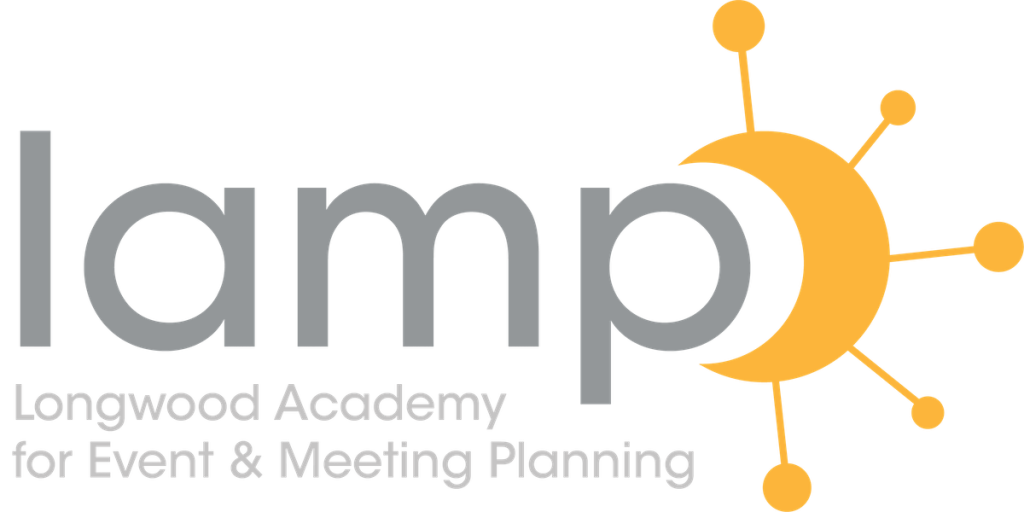Events on campus last fall and this semester have looked a little different than normal. The annual LAMP (Longwood Academy for Meeting and Planning) workshop was no exception. On February 11, 2021, students had the opportunity to learn about virtual events from experienced professionals in the field via Zoom. During the workshop, Tim Vaughn (Technical Producer for Arloesol Designs) and Sarah Luongo (Associate Director for UVA Clubs Strategic Events and Global Engagement) led students through the process of creating virtual events by describing the differences between in-person meetings versus webinars, adapting in-person events to virtual experiences and preparing for digital events. The event consisted of a presentation going over this information then the students worked on a project in break out rooms.
One of the facilitators, Sarah Luongo (’15), an alumna of the Communications Studies program, had some special reasons why she chose to help with this event: “I love any opportunity to come back and meet Longwood University Communication Studies students. I would not be where I am today without the support of the COMMunity (faculty, staff, and fellow students). When I was a student, I was given the opportunity to attend 2 conferences (1 in DC and 1 in Tampa) and with the generous support of alumni and the University I was able to attend with little to no out of pocket expenses. This meant the world to me because I might not have been able to attend without their support. Any chance I get I like to pay it forward.”
Sarah is experienced with virtual event planning because it is a large portion of her job. She was able to provide students with a lot of personal knowledge due to her experiences. As previously mentioned, many aspects of virtual events were discussed throughout the event. However, Sarah also mentioned the most important parts of LAMP to her. “Even though virtual events look different than in-person, we still go back to the basics for the planning process. It is important to identify the goal of your event, your audience, and how you want to measure success. Once you outline those foundations you could build any event – in-person or virtually!” Sarah was able to provide great insider advice to students and we thank her for her willingness to participate.
For most students in 2021, attending class online has become the new norm. However, attending a virtual conference was new to some student participants. Many students expressed their thoughts about LAMP and described what was most useful to them.
Nichole Reano, a junior Communication Studies major with a concentration in Public Relations, seemed to enjoy LAMP and said her biggest takeaway was,
“How to successfully promote a virtual event. This resonated with me because it gave me a better understanding of how important it is to identify your audience, market an event at the correct time, and how to communicate a compelling reason why your audience should care about the event you are trying to promote.”
Reano also mentioned that this was her first time attending a virtual event and that she would recommend other students to participate in LAMP to learn something new.
Another student who benefitted from attending LAMP was Jacob Farmer, a sophomore with a double major in History with a concentration in Pre-Law and Communication Studies with a concentration in Public Relations. Jacob mentioned “As president of the College Democrats of Longwood University, I have worked hard with members and community organizers this past fall and now spring to host engaging online events, so I have certainly experienced this reality firsthand.” The reality Farmer is describing is how much work and preparation goes into planning and facilitating virtual events. Students of all ages who are involved in clubs and organizations have faced the challenges of keeping their members interested in virtual events. Jacob also commented on LAMP as a whole, “I think this year’s LAMP event went exceptionally well. I appreciate that the Communication Studies department took advantage of our new virtual academic landscape to translate LAMP into an online event.”
Students, organizations, companies and the like have had to re-envision their events this year. The Communication Studies department is committed to providing students a useful experience no matter the circumstances. We are very proud of this year’s LAMP and that we were able to carry on the tradition for the fourth time. This event could not have happened without our facilitators and the contributions from our professors. Also, the event could not have occurred without students attending. We thank everyone who was involved in the planning and implementation process as well as all of the participants.

